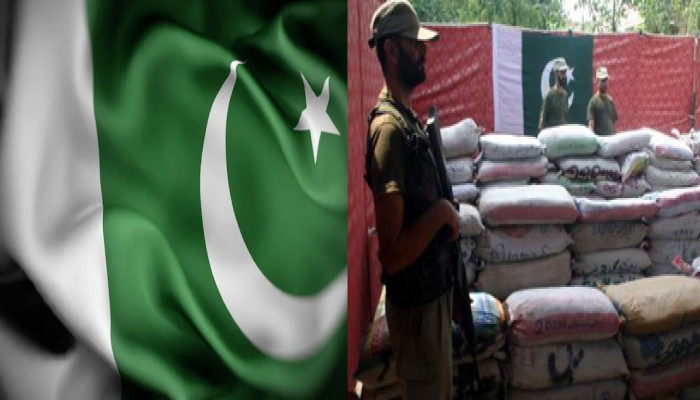Pakistan faces Rs 3.4 trillion loss from Afghan Transit Trade mismanagement
- In Reports
- 11:57 AM, May 03, 2025
- Myind Staff
Pakistan is facing a massive loss of Rs 3.4 trillion, with nearly 30 per cent of it caused by the misuse of the Afghan Transit Trade facility due to illegal trading activities, according to a report.
This huge loss, highlighted in the report "Combatting Illicit Trade in Pakistan" by the Policy Research Institute of Market Economy (PRIME), equals about 26 per cent of the government’s total tax revenue target for this fiscal year, reported The Express Tribune newspaper. A report has estimated that Pakistan is losing around Rs 3.4 trillion in annual tax revenue due to its informal economy, which is valued at $123 billion. The report, released on Thursday, highlighted that illicit trade is becoming a major issue for Pakistan's economy. It is hurting formal businesses, reducing government revenues, and putting consumer safety at risk.
“From smuggled petroleum and counterfeit pharmaceuticals to non-tax-paid cigarettes and under-invoiced consumer goods, illicit trade has entrenched itself across key sectors,” it added.
Recently, the country's intelligence and investigation agencies have raised concerns about customs officials being involved in smuggling and under-invoicing activities. A report estimates that the revenue loss from Afghanistan Transit Trade stands at Rs 1 trillion. Last month, Pakistan relaxed the conditions for transit trade by permitting the import of goods bound for Afghanistan, but only against insurance guarantees. This change came after stricter measures were previously introduced to curb smuggling. PRIME reported that oil smuggling is leading to a loss of Rs 270 billion. The estimated volume of Iranian oil being smuggled is around 2.8 billion liters.
The government charges a customs duty of Rs 16 per litre, along with a petroleum development levy of Rs 78 per litre. This high tax makes smuggled oil more profitable for smugglers. The report also discussed the size of the informal economy, noting that experts believe it to be about one-third the size of the formal economy.
According to the Small and Medium Enterprise Development Authority, the informal economy contributes to more than 40% of the GDP.
According to the 2025 Illicit Trade Index, businesses and consumers are increasingly avoiding the formal sector in Pakistan due to high customs duties, complicated tariffs, inflation, and a growing informal economy. The situation is worsened by regulatory inconsistencies and protectionist trade policies, making legal business operations more costly. Additionally, issues like porous borders, outdated customs infrastructure, and poor coordination between agencies have led to the uncontrolled movement of illegal goods.
The report highlights that Pakistan ranks 101 out of 158 countries, performing below global and regional averages due to weaknesses in governance, law enforcement, and economic policies. The Illicit Trade Index assesses countries based on 37 indicators across six key categories. Pakistan scored 44.5 on the index, which is lower than the global average score of 49.9. This ranking highlights the country's challenges and weaknesses in areas like trade governance, enforcement, and economic regulations.







Comments